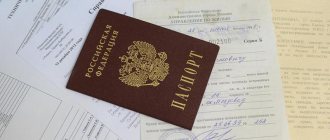Agreement for free use of non-residential premises: contents
In order to give the agreement for the gratuitous use of unoccupied premises legal significance, before execution it is worth carefully studying its contents. Before filling out the form, it is important for the parties to familiarize themselves with the main sections of the document, without which it will not have legal force. Without what information a legal contract cannot be formed?
- Parties indicating data from the passport or registration data from the Unified State Register of Legal Entities. Participants can be both citizens and legal entities;
IMPORTANT: there are a number of restrictions for a commercial organization that acts as a lender. According to Art. 690 of the Civil Code of the Russian Federation, it cannot transfer the premises under such an agreement to the founder, participant, manager, as well as to persons who are members of the management and control bodies over the activities of the organization.
- Description of the property (its exact address, area, purpose, plan);
- Signing date and validity period;
REFERENCE: Based on Art. 610 of the Civil Code of the Russian Federation, if the validity period is not specified in the contract, it is considered concluded for an indefinite period.
Free use, excluding taxes
We draw up a loan agreement
First, we will determine what type of agreement needs to be drawn up when receiving property for free use. Despite the fact that “use” is close in meaning to “lease,” in this case the execution of a lease agreement would be incorrect. The fact is that rent is the provision of property for a fee (Article 606 of the Civil Code), and in our situation no payment is expected. To transfer property for free use, the Civil Code provides for a loan agreement (clause 1 of Article 689 of the Civil Code). According to this agreement, the recipient is obliged to return the same thing to the lender. Usually, during the period of use, he is entrusted with the obligation to carry out major and current repairs (Article 695 of the Civil Code). As with the rental of property, if the agreement does not indicate the time of use, the agreement is considered concluded for an indefinite period (clause 2 of Article 610 of the Civil Code). There are also restrictions on the application of this type of agreement. Thus, a commercial organization does not have the right to transfer property to its founders and managers for free use (clause 2 of Article 690 of the Civil Code).
Income - as from rent
In accordance with paragraph 8 of Article 250 of the Tax Code, property received free of charge is included in non-operating income. But in our situation, the property is not “received”, but “transferred for use.” Nevertheless, the information letter of the Presidium of the Supreme Arbitration Court dated December 22, 2005 No. 98 contains the statement that by using other people’s things for free, the enterprise receives property rights, thus non-operating income arises. The same conclusion is contained in the letter of the Ministry of Finance dated April 4, 2007 No. 03-03-06/4/37 (the full version of the document can be found in the legal reference system ConsultantPlus. - Ed.).
Officials indicated that income generated in connection with the use of property received under gratuitous use agreements should be taken into account when calculating income tax. Costs associated with the maintenance of such property can also be included as expenses for income tax purposes. To do this, the following conditions must be met: the organization’s activities in using this property must be aimed at generating income; expenses must meet the criteria established by Article 252 of the Tax Code.
What is considered income in this case and how to evaluate it? The benefit should be determined based on market prices (taking into account the provisions of Article 40 of the Tax Code) for the rental of identical property. This statement is contained in the letter of the Ministry of Finance dated April 19, 2006 No. 03-03-04/1/359 (the text of the letter can be found in the legal reference system ConsultantPlus. - Ed.).
In another explanation (letter dated December 11, 2006 No. 03-11-04/2/260), the financiers were not so categorical. They allowed taxpayers to independently determine the procedure for assessing income associated with the gratuitous receipt of property rights, recalling that the Tax Code does not establish an algorithm for calculating these incomes. Officials also pointed out that assessing income by analogy with the procedure for determining market prices for goods, works, and services is a right and not an obligation of the organization.
In any case, information on market prices must be confirmed by the borrower with documents or through an independent assessment (letter of the Ministry of Finance dated July 25, 2006 No. 03-11-05/187). Please note that it is very difficult to prove the identity of property. To do this, the tax authorities are required to investigate what price has developed during the interaction of supply and demand on the market of identical services in comparable economic conditions for the rental use of property (Resolution of the Federal Antimonopoly Service of the Moscow District dated March 23, 2007 No. KG-A40/864-07). A comparison must also be made of similar characteristics and similar components that allow the rented premises to perform the same functions (resolution of the Moscow Region Arbitration Court of January 23, 2007 No. A41-K2-16516/06).
Now let’s consider a situation in which property was received by an organization under an agreement for gratuitous use from the founder. In accordance with subparagraph 11 of paragraph 1 of Article 251 of the Tax Code, when determining the tax base, income in the form of property received by the organization free of charge from the founder, who owns more than 50 percent of the authorized capital, is not taken into account. However, in this paragraph we are talking about property received free of charge, and not taken for free use. So in the latter case, it will not be possible to save on income tax. This conclusion was confirmed by the Ministry of Finance in a letter dated March 26, 2007 No. 03-11-04/3/88.
attention
Certain provisions of the Civil Code regulating legal lease relations are also applicable to the transfer of property for free use. Thus, the object in both cases can only be individually defined and non-consumable things that do not lose their natural properties in the process of their use. These are, for example, buildings, equipment, vehicles (clause 1 of Article 607 of the Civil Code). Things defined by generic characteristics, such as brick, sand, cement, cannot be transferred for free use. Also common are the provisions relating to the term of the contract (clause 2 of Article 610 of the Civil Code), its conditions (clauses 1, 3 of Article 615, clauses 1, 3 of Article 623 of the Civil Code).
“Temporary gifts” do not depreciate
Fixed assets transferred and received under gratuitous use agreements are temporarily excluded from depreciable property (clause 3 of Article 256 of the Tax Code). Moscow officials also agree with this fact (letter from the Federal Tax Service for Moscow dated May 20, 2005 No. 20-12/37769). Depreciation accrual stops on the 1st day of the month following the month in which the transfer occurred. When returning property, depreciation begins on the 1st day of the month following the month in which the fixed assets were returned to the taxpayer (clause 2 of Article 322 of the Tax Code of the Russian Federation).
The Ministry of Finance in letter dated January 16, 2007 No. 03-03-06/2/1 indicated that in tax accounting, after the return of depreciable property, its useful life is not extended for the period of gratuitous temporary operation. Previously, a similar position was voiced by Moscow officials in a letter from the Department of Tax Administration for Moscow dated March 1, 2004 No. 26-12/12876.
Free use in a special mode
Organizations using the simplified taxation system determine income in accordance with Articles 249 and 250 of the Tax Code (clause 1 of Article 346.15 of the Tax Code). Based on this, based on paragraph 8 of Article 250 of the Tax Code, when simplifiers receive property for free use, non-operating income arises (letter of the Ministry of Finance dated July 25, 2006 No. 03-11-05/187).
It is noteworthy that previously tax specialists had a different point of view on this issue. The Ministry of Finance in letters dated October 19, 2006 No. 03-11-04/2/213 and dated November 30, 2006 No. 03-11-04/2/251 stated that Articles 249 and 250 of the Tax Code do not provide for the determination of income when receiving property under gratuitous use agreements. And in this case, the object of taxation for the tax paid in connection with the application of the simplified taxation system does not arise. However, we would not advise you to rely on these letters - they still contradict the law. Moreover, Moscow officials unequivocally spoke out in favor of including in non-operating income taken into account when calculating the single tax, income in the form of a gratuitously received right to use property (letter from the Federal Tax Service for Moscow dated April 17, 2006 No. 18-11/3/ [email protected] ). By the way, you can safely take into account the expenses associated with the use of the specified property in the tax base, since officials have no disagreements here.
Now let’s consider the issue of the emergence of income under an agreement for the gratuitous use of property for organizations engaged in business activities that are only subject to a single tax on imputed income. The Ministry of Finance in letter dated March 23, 2007 No. 03-11-04/3/83 noted that in this case there is no need to tax economic benefits. After all, according to paragraph 8 of Article 250 of the Tax Code, benefits from gratuitous use are recognized as non-operating income. And companies that use imputation have nothing to do with income tax expenses.
M. Kosulnikova , chief accountant
Features of a contract for the free use of non-residential premises
The distinctive features of the document are:
- Gratuitous nature. In other words, the parties do not have any financial obligations to each other under this agreement;
- Limited rights of the borrower. According to Art. 689 of the Civil Code of the Russian Federation, the terms of the contract provide for the possibility of transferring real estate only for temporary use, while, for example, when renting, the right of ownership also arises;
- The rights of third parties are preserved. The conclusion of an agreement for the gratuitous use of non-residential premises between the lender and the borrower does not entail the termination of the rights of third parties, for example, to use the premises. The lender is obliged to notify the second party to the agreement about the rights of third parties before the parties sign a copy of the agreement;
- As a general rule, the borrower bears the costs of maintaining the property and makes major and current repairs at his own expense.
NTVP "Kedr - Consultant"
LLC "NTVP "Kedr - Consultant" » Services » Legal consultations » General civil issues » Does the borrower, to whom real estate has been transferred for free use, have the right to lease (for paid use) the specified real estate to a third party?
Question
Does the borrower, to whom real estate has been transferred for free use, have the right to lease (for paid use) the said real estate to a third party?
Lawyer's answer
The borrower has the right to lease the real estate transferred to him for free use to third parties, but for this he must obtain the consent of the owner of the property (lender).
According to paragraph 1 of Art. 689 of the Civil Code of the Russian Federation, under an agreement for gratuitous use (loan agreement), one party (the lender) undertakes to transfer or transfers an item for gratuitous temporary use to the other party (the borrower), and the latter undertakes to return the same item in the condition in which it received it, with taking into account normal wear and tear or in the condition stipulated by the contract.
The borrower bears the risk of accidental death or accidental damage to the thing received for gratuitous use, if the thing is lost or damaged due to the fact that he did not use it in accordance with the agreement for gratuitous use or the purpose of the thing, or transferred it to a third party without the consent of the lender (Art. 696 of the Civil Code of the Russian Federation).
The lender has the right to demand early termination of the agreement for gratuitous use in cases where the borrower, without the consent of the lender, transferred the thing to a third party (clause 1 of Article 698 of the Civil Code of the Russian Federation).
Thus, although the provisions of the Civil Code of the Russian Federation do not directly provide for the possibility of a borrower transferring an item received under a loan agreement to a third party, the above rules indicate that such transfer is possible with the consent of the owner of the item.
Consequently, having received the appropriate consent of the owner, the borrower has the right to lease the thing received for free use.
In paragraph 2 of Art. 689 of the Civil Code of the Russian Federation lists the rules that apply to the agreement for gratuitous use. Clause 2 of Art. 615 of the Civil Code of the Russian Federation, which provides for the right of the tenant, with the consent of the lessor, to sublease the leased property, is not indicated in the said list. At the same time, in Chap. 36 of the Civil Code of the Russian Federation, which regulates the provisions on the agreement for gratuitous use, there is no rule prohibiting the borrower from renting out the property he has for temporary use. As a general rule, the right to lease property belongs to its owner. However, lessors can also be persons authorized by the owner to rent out property (Article 608 of the Civil Code of the Russian Federation). Therefore, if there is appropriate authority, the borrower can, with the consent of the owner, lease out property received for free use.
This is confirmed by judicial practice (see, for example, Resolutions of the FAS of the West Siberian District dated 05/07/2010 in case N A75-2599/2009, FAS of the North Caucasus District dated 09/11/2006 N F08-5337/2006, dated 03/10/2009 N A53-8833/2008-C2-50).
However, the courts expressed a different point of view on this issue. Thus, the Federal Antimonopoly Service of the Far Eastern District, in Resolution No. F03-A73/05-1/1029 dated May 24, 2005, came to the conclusion that the borrower is not required to obtain the consent of the lender if the agreement for free use does not contain provisions prohibiting the transfer of premises to third parties under a lease agreement without lender's consent.
In this case, a sublease agreement can be concluded in relation to the property that is the subject of the lease (Article 615 of the Civil Code of the Russian Federation). In the situation under consideration, the real estate was transferred under a loan agreement, therefore, its transfer by the borrower for a fee for temporary possession and use or for temporary use should be carried out not under a sublease agreement, but under a property lease agreement (Article 606 of the Civil Code of the Russian Federation).
{Question: Does the borrower have the right to lease real estate transferred to him for free use under a lease agreement? (Expert Consultation, 2011) {ConsultantPlus}}
The explanation was given by Igor Borisovich Makshakov, legal consultant of LLC NTVP Kedr-Consultant, March 2018.
When preparing the answer, SPS ConsultantPlus was used.
This clarification is not official and does not entail legal consequences; it is provided in accordance with the Regulations of the CONSULTATION LINE ().






